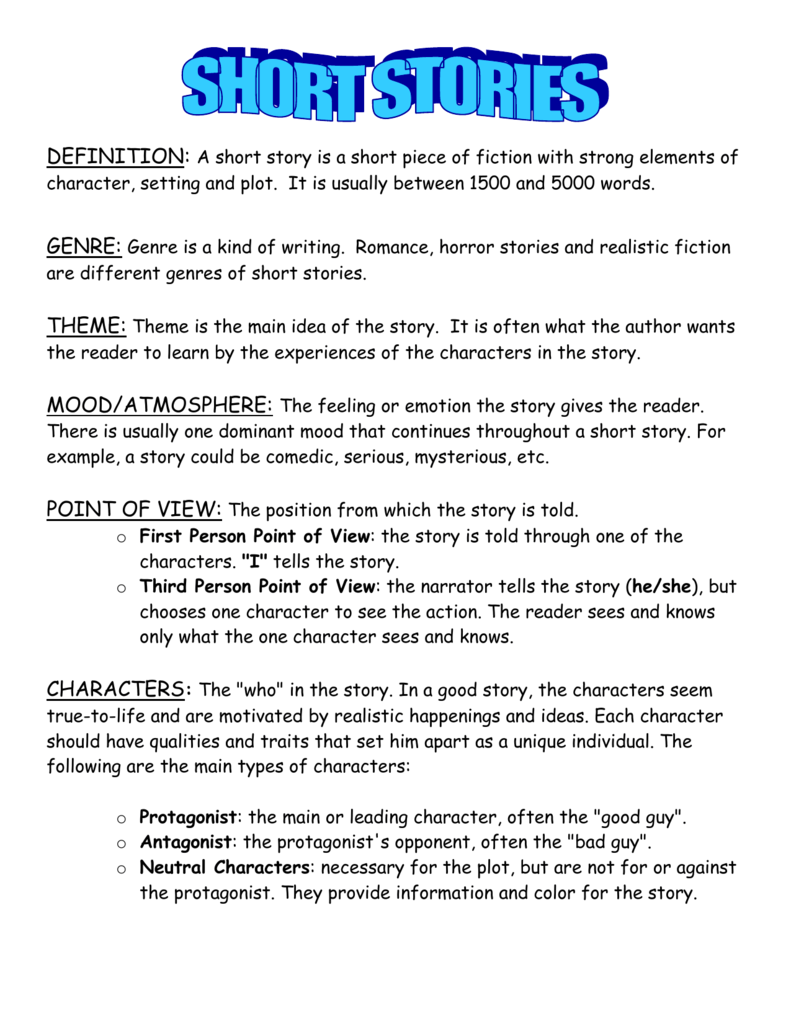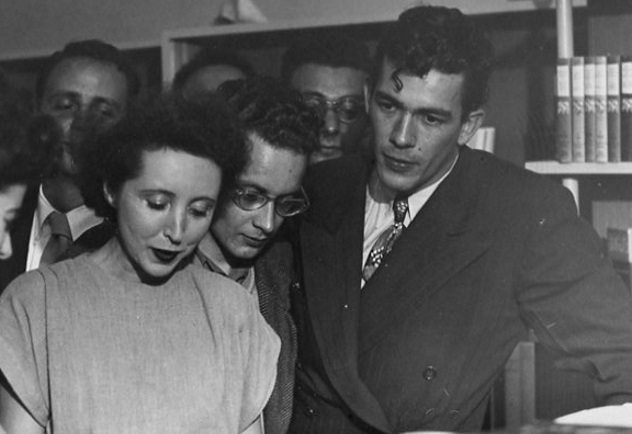Example Of Story About Familyclevelandmultifiles
Most published genealogies aren't meant to be read. You know the type. The ones with just names, dates, and places, some of them no more creatively done than printing out computer databases. Keep in mind that no one's family history is compelling and interesting, until you make it compelling and interesting.
May 09, 2019 It's all a matter of following our definition of story. Here's an example of the first draft of a story idea. Author Voiceover My novel is about an aspiring actress who doesn't think that her father ever loved her. He was a famous actor and all he ever cared about was his work. He was always gone throughout her childhood. The example in this article walks you through building a story about earthquake trends over time. The story feature in Tableau is a great way to showcase this type of analysis because it has a step-by-step format which lets you move your audience through time. Discover stories from around the world created by the storytelling community with Esri Story Maps. Get inspiration and ideas for your own stories. Examples of Family Stories When Writing Your Life Story Don't Forget Your Family. By definition your autobiography is about you, but don't hog all the spotlight. Don't forget to mention other family members, especially brothers and sisters. A Short Story: A Story Of A Scary Story 1070 Words 5 Pages “Uncle Chuzube, uncle Chuzube can you tell us a scary story,” the five children in the room said in unision. “Alright, alright kids I’ll tell you one scary story then bedtime, okay?” Uncle Chuzube said. “Hooray,” the children cried.
Writing your family history so people will want to read it is not all that difficult. You can write a completely factual account of your family, fully documented, yet as readable as a novel. By borrowing techniques from fiction writers, you can turn your dry facts into a compelling family history narrative.
Remember, all good stories have a beginning, a middle, and an end, and it's these three parts that are the secret to writing a readable family history.
Grabbing Your Reader
I don't know who came up with the brilliant idea that a family history had to begin with, 'Samuel Martin was born on 3 March 1849 in a log cabin in Illinois.' Good grief. Who'd want to read any further? Would you read a novel that began that way? Why do we think we have to begin our family history with the day someone was born? Instead, use the same writing technique that fiction writers use: start in the middle of a story, then flashback and tell the reader how we got to that point.
After I've thoroughly researched a family, I look for the most interesting aspect of their lives and open my narrative there. Say you're writing about an immigrant family, begin the story aboard ship or the moment they step foot on American soil. Or say you're writing about a family who made the overland journey from east to west; open with what it must have been like on the trail. Reel the reader in with an exciting, happy, or tragic event, or a conflict. If you have letters, diaries, or an interesting record, you can open by quoting that source. But remember: You are writing nonfiction, so you have to write your family history within the confines of fact. Here's an opening example:
- Hannah Martin was senile. In 1904, Hannah was eighty-two-years-old and since 1879, living off of her third husband's Civil War pension. Nervous, agitated, and afraid of loosing her one means of support, Hannah had mislaid or lost her pension certificate and could not find it anywhere. Without it, the pension agent in Indianapolis could stop her payments. Fortunately, Walter Hughes, the resident agent for the Phoenix Insurance Company, came to her rescue. Hughes reassured Hannah that he would handle the problem and wrote the pension office on her behalf.
See how I plunged us right into the middle of the story? In the paragraphs that follow this lead, I'll use a flashback technique to fill in the reader on how Hannah got to this point. All of the details in this paragraph came from the letter Hughes wrote to the pension office. Rather than printing a transcription of the letter, I just paraphrased it into my own words. And, of course, in the actual narrative, I inserted a footnote and gave the citation for the letter.
Keeping the Story from Sagging in the Middle

How do fiction writers keep you turning the page? They build suspense. Now I'm not talking Stephen King suspense. All you need to do is leave something hanging, either within a chapter or at the end of a chapter. You don't need to give us everything you know all at once. Create an air of mystery. Here is a quote from a letter that I used to end a chapter in a family history:

- I thought I could see the thing through, Grace, but I was a fool to think so. It's no go. The last few months have been pure hell, and I don't have to tell you to what silly, foolish little things I stooped in constantly trying to suppress the big thing, which I considered I had no right to say Ö. I've got to know whether I have a chance. As you probably know, I haven't anything to offer you; to ask you to marry me at present would be no compliment Ö. But if I'm ever lucky enough to be able to ask you with a clear conscience, will I have a chance? Will you write real soon and tell me, and tell me in words of one syllable, because nothing could be worse than uncertainty.
I'm not saying the things that are usually said and that I want to say so badly, because I want to keep this letter as rational as possible, and I'm sure you know them anyway. But if I get a certain answer, oh what a letter I will write! Will you send it right away, you wonderful girl?

Example Of Story About Love
Now, be honest. Could you put the book down at that point? Even if you were late to pick up your kids from school, wouldn't you turn the page for a peek at Grace's answer?
Example Of Story About Familyclevelandmultifiles Book
Ending the Story
So who was the other wise person who thought that a family history had to end when everyone in the story died? Or who thought the story had to have a happy ending? Not true! You certainly don't have to kill off your ancestors if you don't want to, nor does everyone have to live happily ever after. You can end the story with your great-grandparents in their old age. You can conclude with a tragic event. After all, tragedies, throughout literary history, stick with us longer and have more of an impact on us.
When I was writing the biographies of Jay Roscoe Rhoads and his wife Grace (soon to be published by Newbury Street Press, Boston), I didn't want to kill off Roscoe and Grace at the end of the story. I had grown fond of this couple, and I didn't want to see their demise, even though in reality they've been dead for about fifteen years. So I didn't end their story with their obituaries. Instead, I put family stories of their last days in an Epilogue, followed by something more haunting and enduring. Fortunately, Roscoe had written a fabulous two-page reminiscences on his eighty-fifth birthday, about two and a half years before he died. It contained his life's philosophies and ended with a great closing sentence: 'Well, so much for the ruminations of a tin horn philosopher, just turned 85.' End of story. Make documents work for the story, so they become powerful openings, middles, or endings.
But what about all those facts? In writing narrative, some facts might not conveniently work themselves into the story. Divide your book into two parts. Part One is the readable narrative family history; Part Two is the reference section of genealogical reports or summaries with all the bare bones facts.
So that's the secret to writing a compelling family history: crafting your facts into a nonfiction narrative, using fiction techniques. As you read fiction, pay attention to how the author opens the story, how he or she keeps you reading, and how the story ends. You can apply just about any fiction writing technique to nonfiction writing. Now you can write a compelling family history, too.
Courses in Family History Writing
- Check with adult education and community colleges. Many offer courses in life story writing, creative writing, and creative nonfiction writing. You can apply the techniques you learn to writing your family history.
- Writer's Digest Online Workshops offers courses in life story and personal/family memoir writing.
Writing Guidebooks
- Bringing Your Family History to Life through Social History by Katherine Scott Sturdevant (Betterway Books, $18.99)
- Writing Family Histories and Memoirs by Kirk Polking (Writer's Digest Books, $14.99)
- Writing the Family Narrative by Lawrence P. Goldrup (Ancestry, $12.95)
- For All Time: A Complete Guide to Writing Your Family History (Heinemann, $15.95)
- For more on writing your family history, see the January 2001 issue of Family Tree Magazine .